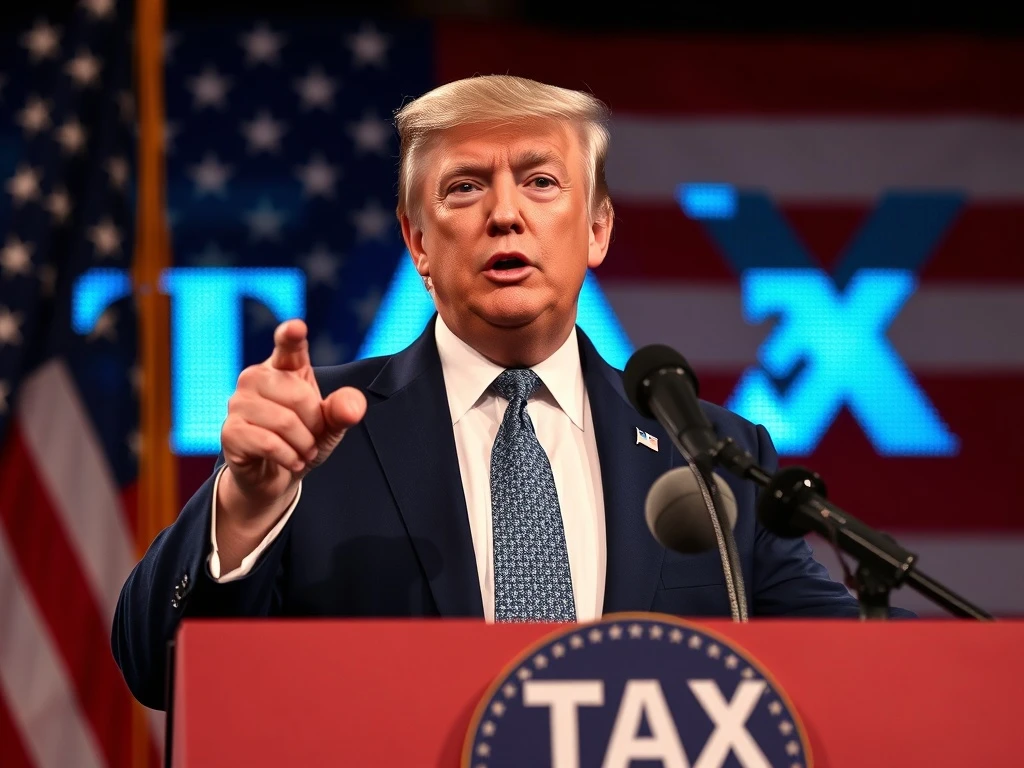Former President Donald Trump has issued a stark warning to foreign governments, threatening severe retaliation against countries implementing digital taxes on American technology giants. This bold stance could potentially ignite global trade tensions and reshape international tech regulation frameworks.
Understanding the Digital Taxes Controversy
Several nations have recently proposed digital taxes targeting major US technology companies. Consequently, these measures aim to capture revenue from digital services provided within their borders. However, the Trump administration views these actions as discriminatory trade practices. Therefore, retaliatory measures are being considered to protect American economic interests.
Potential Retaliation Strategies
The proposed response includes several aggressive measures. Firstly, tariff increases on imported goods from offending countries. Secondly, restrictions on market access for foreign companies. Additionally, the administration might pursue legal challenges through international trade organizations. These actions could significantly impact global economic relations.
Global Implications of Digital Taxes
Digital taxes represent a growing trend among developed nations. Many countries argue that current tax systems fail to adequately capture value from digital services. However, the United States maintains that these measures unfairly target American companies. This conflict highlights the need for updated international tax agreements.
Impact on American Tech Companies
Major technology firms face increasing regulatory pressure worldwide. Digital taxes could substantially increase their operational costs abroad. Moreover, these companies might need to restructure their international operations. The potential retaliation could provide temporary relief but might escalate trade tensions further.
Historical Context of Trade Disputes
This situation mirrors previous trade conflicts involving technology sectors. Past administrations have also challenged foreign digital taxation attempts. However, the current threat of retaliation appears more immediate and comprehensive. The approach reflects broader concerns about maintaining US technological dominance.
Future Outlook and Resolution Possibilities
International negotiations continue regarding digital taxation frameworks. Many experts advocate for multilateral agreements rather than unilateral measures. Nevertheless, the threat of retaliation could accelerate these discussions. Ultimately, a balanced solution must address both revenue concerns and fair competition principles.
Frequently Asked Questions
What are digital taxes?
Digital taxes are levies imposed on revenue generated from digital services provided by foreign companies within a country’s jurisdiction.
Which countries have proposed digital taxes?
Several European nations including France, Italy, and the UK have considered or implemented digital taxation measures targeting large tech companies.
How would retaliation affect consumers?
Retaliatory measures could lead to increased prices on imported goods and potential restrictions on foreign digital services available to American consumers.
Are there alternative solutions to digital taxes?
Yes, international organizations are working on updated tax frameworks that would more effectively capture digital economy revenue without discriminatory measures.
How might this affect stock markets?
Trade tensions typically create market volatility, particularly affecting technology stocks and companies with significant international exposure.
What timeline exists for potential retaliation?
The administration has indicated that retaliatory measures could be implemented within months if negotiations fail to produce satisfactory results.
























